Reading Tom Dugdale’s Directing Your Heart Out recently reminded me of a spark I once had. And it showed me that it hasn’t entirely faded.
New Brunswick. 2007. I’m with a couple of friends in a classroom closet. We’re auditioning other students for the musical I wrote over the summer. Our music teacher at the time (big shoutout to Kyle) told me he thought I could write a musical in the break between grade seven and eight. And, with the help of a good friend (cheers to Brenaugh), I did.
In Love With a Loner is just under an hour long and is about a boy named Ray. Ray moves from town to town and never makes any friends. In his new school, he falls in love with Lucy, the most popular girl, who couldn’t possibly love him back. But in fact, she does, and she tries to hide this from her friends in case she loses her popularity.
Meanwhile, hoodlums are trying to outright steal Lucy’s popularity for themselves, though they’re not quite sure how to do that. Also, a random clown keeps showing up in the hallways. All these inspiring moments, each a theatrical marvel, are narrated by a rapping janitor (and, not to brag, but this was before Lin Manuel-Miranda was rapping in his musicals).
Not only was this my first musical, it was also my first time directing. And I was cutthroat. From what I remember, I think about 50 students auditioned, and 20 made the cast. When a few kept not showing up to rehearsals, or coming late, I’d tell them to leave. This was no cheap play for a few amateur middle schoolers. This was high art!
Nah, I don’t think I was that self-centred about it, but I did take it seriously. And I believe we all had a good time overall. The music was catchy. The absurdity of it all made us laugh. At one point, a mop comes to life and starts singing, ordering Ray to “be himself and no one else” lest he become a coward for the rest of his life. This all happens while he’s trapped in a literal closet. The principal is German for some reason, and every time she enters The Imperial March plays.
It had somewhat of a life after its initial one-night run. We fluffed it up with even stranger characters and brought it to the New Brunswick Drama Festival.
Dramafest, as it’s called, is a wonderful conference that brings loads of New Brunswick teenagers to Fredericton every year. In fact, this year it starts the very day I’m posting this. It’s a treasure for the east coast, providing professional-level adjudication and tons of workshops. And it creates memories, like the one below, that can last a lifetime. I mean, Ms. Suzanne Doyle-Yerxa, a mentor to many, encouraging insecure, closeted, 12-year-old me to make bold choices? I posted this clip privately years ago and forgot about until now. It’s kind of the medicine I’ve needed all along.
That first directing process, and the Dramafest experience, was game-changing for me. I seemed to slip into the role of “director” somewhat easily, albeit with some major lessons to learn. At that age I thought being in a position of leadership meant being in control (i.e. cutting people from the show on a weekly basis). But that understanding has morphed over the years.
Reading this book now, I’m thinking it felt natural because I enjoyed the collaborative and playful spirit: seeing what choreography could do to a scene, how musical accompaniment could change the rhythm, how the actors’ choices could take us on a whole different trajectory. And also… it was a middle school musical. The stakes were low. We were free to dream big.
Directing Your Heart Out’s 110 pages have re-inspired me to return to the art form I’d been engaged with for a good chunk of my life. It’s not academic and does without lofty language. It’s sharp and accessible, and gives directors at any stage of their career the permission to lean into their authentic selves. It emphasizes the humanity of the rehearsal room, and clearly articulates what makes a compelling production. It highlights the need for play. It’s short, sweet, and full of heart.
I’m drawn to directing because of how joyful it is to build new worlds. The fictional worlds of the theatre, yes, but also the real worlds of rehearsal rooms. It’s more about listening and learning than it is going in knowing what you want — and expanding each other’s imaginations in the process. I enjoy bringing people together and creating stuff. And more importantly, I love creating environments for artists, technicians, and administrators that allow them to bring their full selves and encourage free expression.
High school also saw a large and almost overly fun production of You’re a Good Man, Charlie Brown. All these pals were so committed to every moment. Look at the strength in those arm extensions!
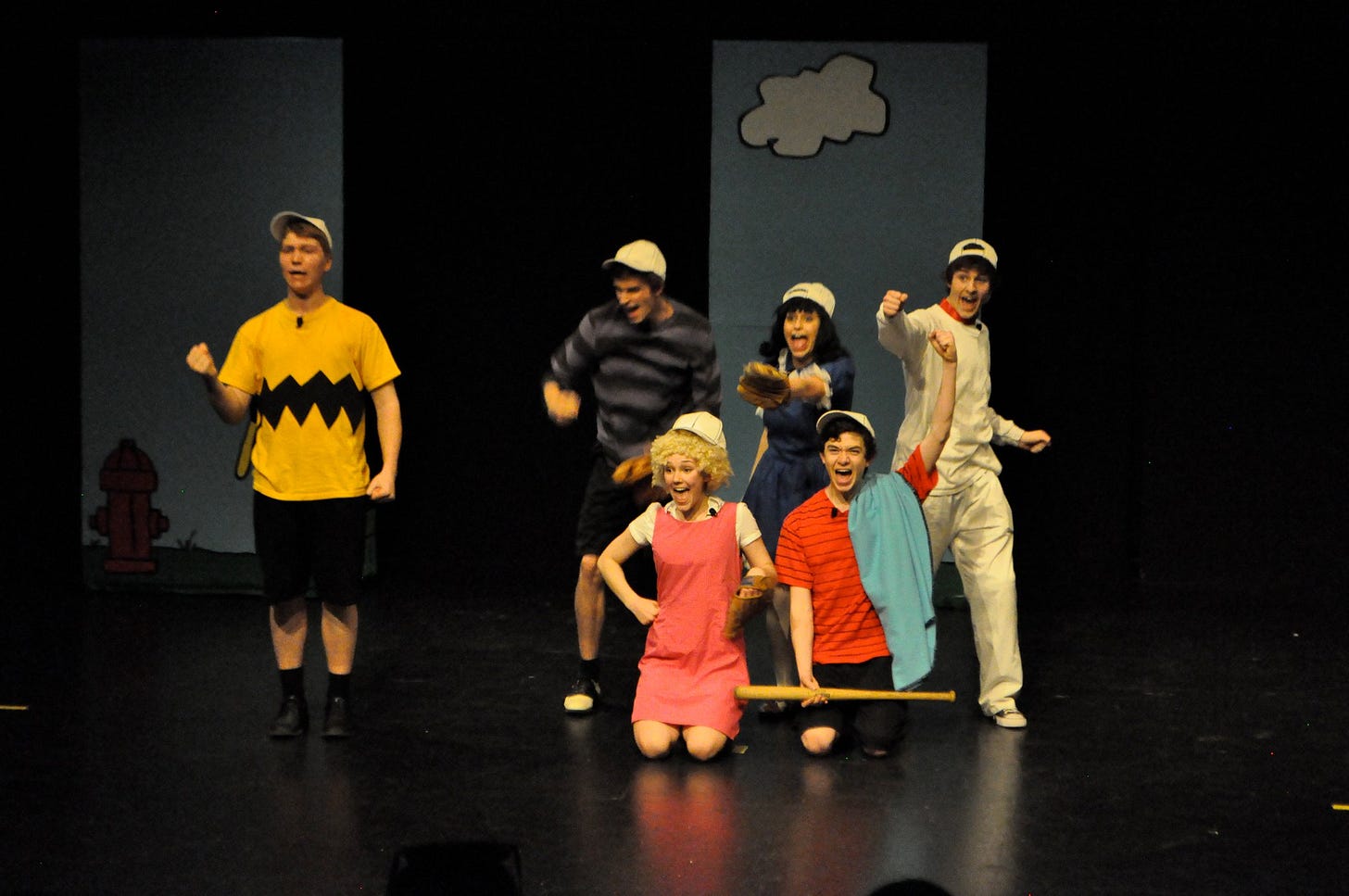
My time in undergrad included horrible grades and half-decent directing. One of the fun challenges was a small play with dialogue pulled from the children’s folk song “There’s a Hole in My Bucket”. The dialogue made comedy a challenge, but I think it landed thanks to some impressive performances. It had a lot of hay, and a fantastic papier-mâché boulder. It’s too bad another play had to set up right after… but the decision to be bold, while still being able to explain those bold choices, led to a satisfying little show.
While in school I worked at a local summer stock, assisting with a production of Tuesdays with Morrie. It was my first time on a professional production, and I’m still gushing 11 years later. Leaving rehearsal and biking back to a little cabin on the water? Getting up early to make crappy coffee in an old, stained pot, then having my mind blown by seasoned pros? Phenomenal experience. Again: the vibes, y’all. Kindness was all around. Actors were encouraged to make big choices free of judgement. Designers cared deeply for the text, thanks to David Jansen’s careful analysis and inspiring passion.
I guess what I’m reminding myself of here is that this thing that’s been scaring me for some time is really just all about playing. Dugdale points it out too: rehearsals should be light and welcoming. Theatre is a public service, and we are public servants. Yes, we can challenge ourselves and each other creatively. And yes, we may get tired, or bored, or irritated. But the environment should feel safe enough for everyone to continue making bold choices and have a good time putting on a show. That energy is important because it always makes itself visible to the audience in some way or another.
Thanks for coming with me on this quick walk down memory lane. Dugdale’s book reminded me that directing and making theatre is all about… taking action. Trying to get out of my own head is the first step. There are hurdles and strange egos out there to navigate, which can rightfully cause some avoidance, but there’s also the beautiful thing that happens when we get in a room and make bold choices.
I’m so grateful for the times and experiences I’ve had, and for the wonderful mentors along the way. Now to keep building.


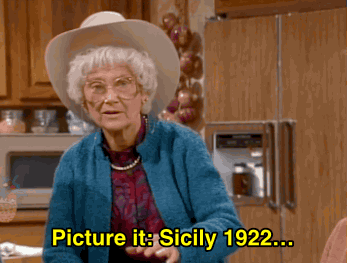
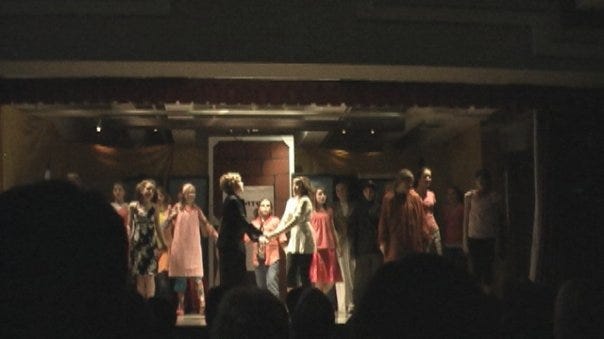
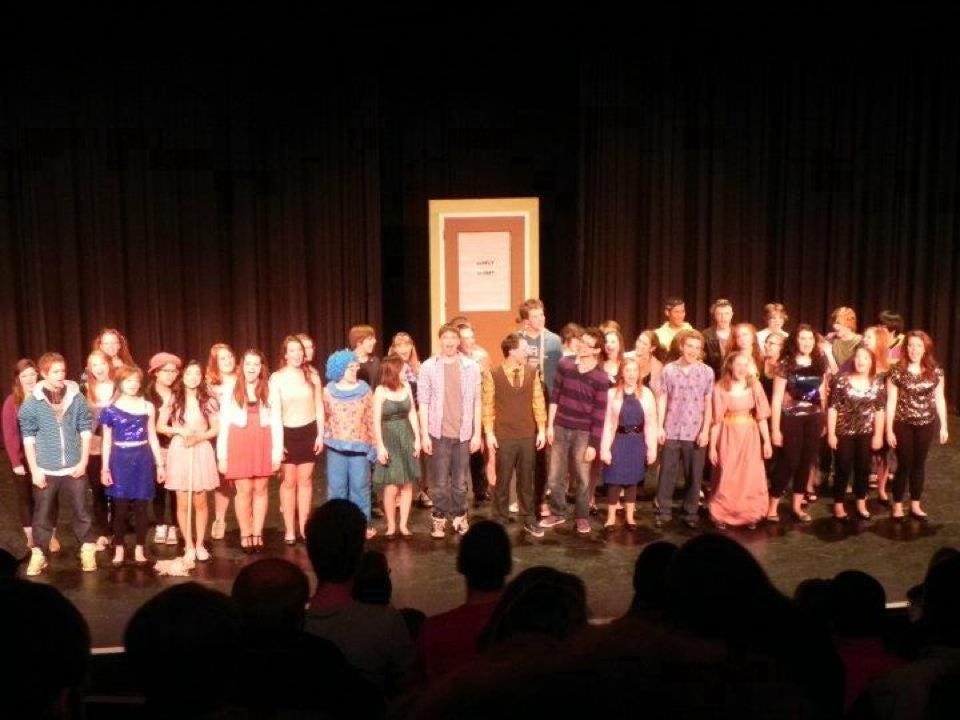
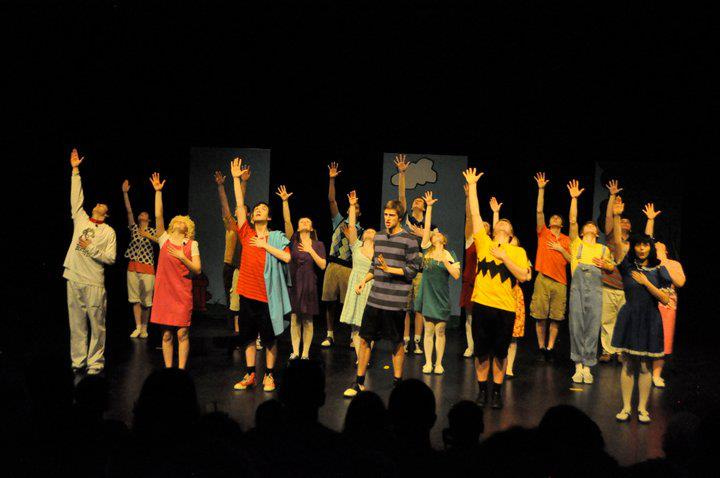
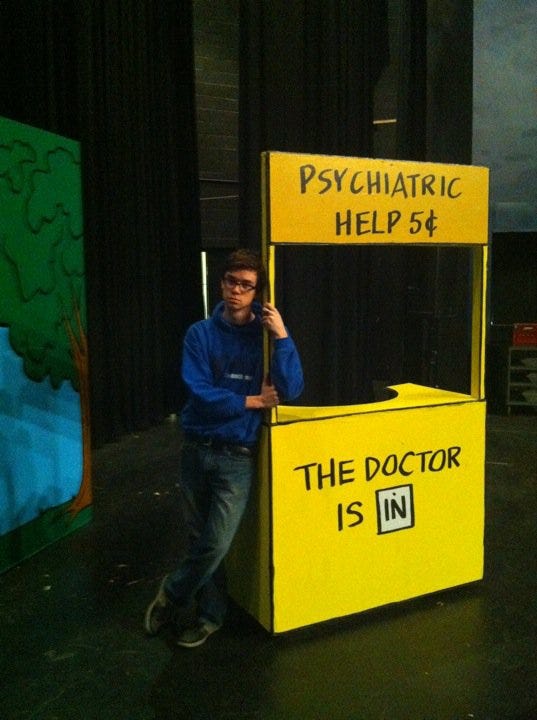
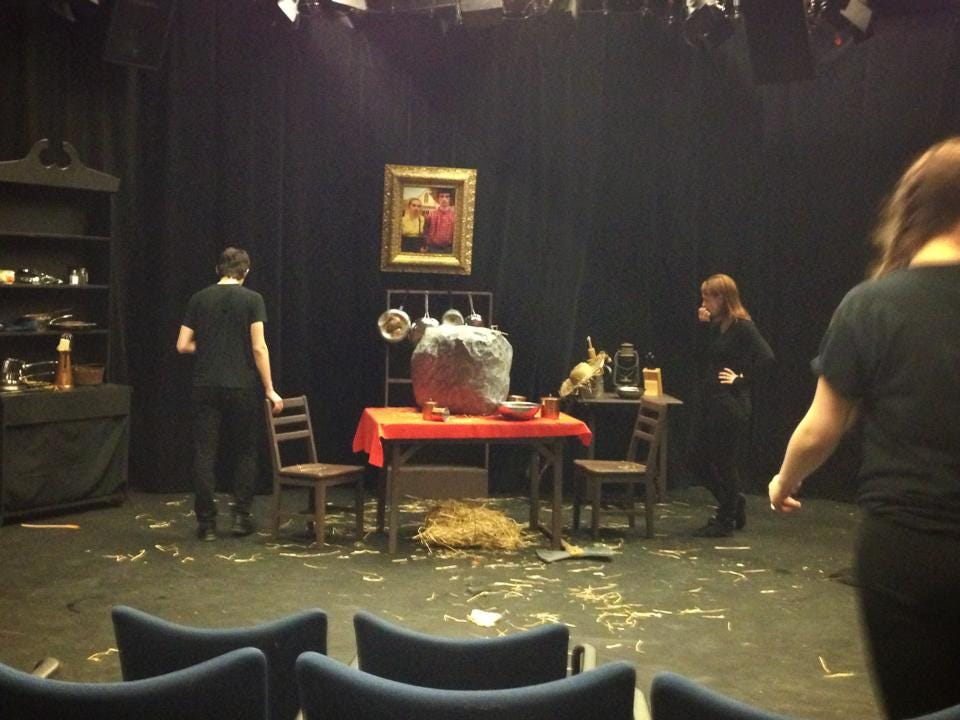
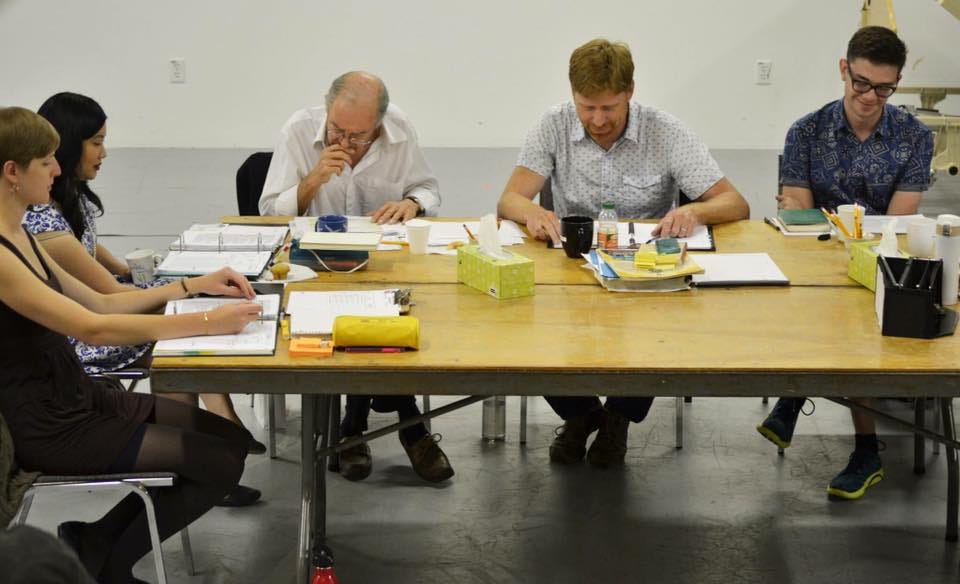
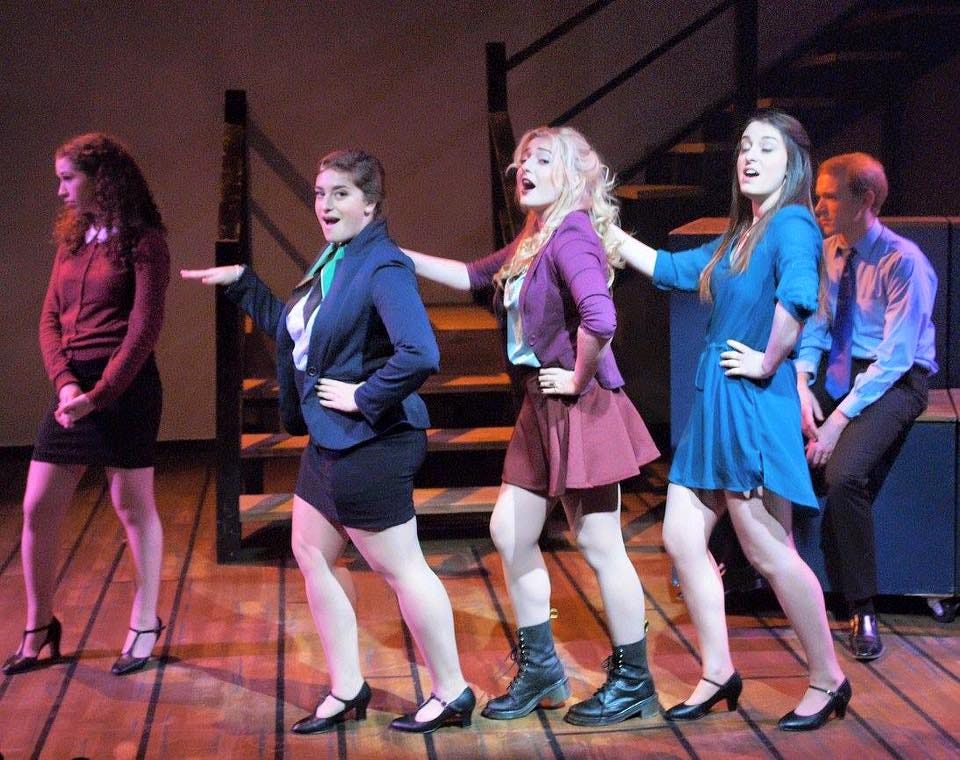

Treasured memories !